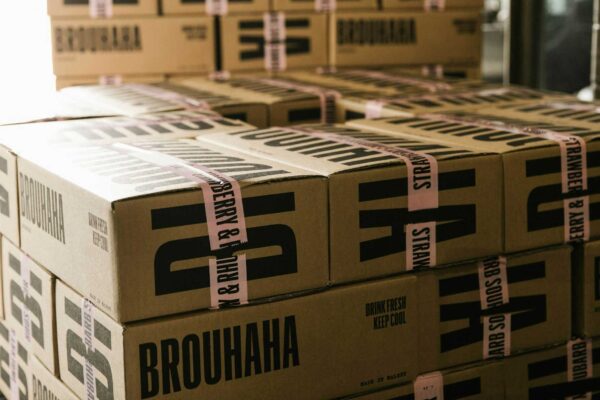Brace for impact: Freight misdirection attacks up 430%
Strategic cargo theft is a runaway crime-train, and freight misdirection attacks are proving to be the key driver. In fact, CargoNet reported a 5x year-over-year increase in November—and those are just the reported thefts. Fail to address the threat, and shippers, like you, could very well get smacked dead-on as you’re crossing the tracks.
We’re already on high alert, as are experienced freight brokers and carriers across the industry. Ask just about any of us, and we’ll tell you attempted fraud is the bane of our existence. In our conversations with small-to-mid-sized shippers, however, we often find that they’re unfamiliar with these scams. Even larger corporations with in-house risk management staff and knowledge of the threat sometimes don’t recognize just how pervasive it is.
So far, the DOT and FMCSA haven’t taken any meaningful action and this rising fraud calls for an all-hands-on-deck solution. That means it’s up to us—brokers, carriers, and shippers—to do what we can to address the issue.
The good news: The more you understand this threat, the more likely you are to stack the deck in your favor.
What is a freight misdirection attack?
These attacks are a form of strategic cargo theft—sometimes called “double brokering” scams. In short, they involve the illegal passage of freight from one responsible party to an undisclosed secondary party with the intent to redirect and fence the freight. Often involving hacking and identity theft, the fraudulent party could appear to be a broker, shipper, or carrier.
Let me give you an example. A legitimate freight broker accepts a shipment from their client, and they give it to ABC Carrier. ABC, in turn, shares their driver’s name—Max—and provides periodic load updates that have little to no basis in fact. That’s because, unbeknownst to the broker, ABC Carrier has given the load to Fred’s Trucking and given the Fred’s driver a different delivery time and location. Throughout, ABC plays a shell game with the freight status and location to buy time and obscure their intentions.
Sometimes Fred’s Trucking is in on the scheme. Sometimes Fred’s is an ethical business that has no idea they’re illegally transporting a load to the scammer’s chosen warehouse—or that they may or may not be paid when it’s delivered.
It’s important for shippers to understand that these aren’t down-on-their-luck hooligans operating out of their aging aunties’ basements. These are sophisticated crime syndicates, largely originating in and operating from Eastern Europe. And because they keep the physical freight at arm’s length, they can mitigate their risk and often operate without consequence.
Clearly, this is a serious threat that demands a serious response.
Today, no load is safe. If the situation is right, they’ll take anything—from auto parts to toilet paper.
Double brokering scams—this is the Wild West, folks
Freight misdirection is rampant. While brokers and carriers across the industry fear losing business by speaking out, everyone has experienced a cargo theft or an attempted theft.
The stories are, in a word, nuts.
One carrier shared that a scammer stole his identity and changed his company’s contact information in the DOT website—putting himself in a position to verify drivers and secure the release of loads. When the business owner caught the change and asked the DOT to revert to the original data? The cargo thief called him directly, irate that he’d interfered with his ability to defraud shippers and brokers.
They are absolutely brazen.
And these crime syndicates are not only stealing or creating fake carrier and broker identities—they’re also presenting themselves as customers.
In one instance, a criminal found a beverage company’s VP of sales on LinkedIn, created a fake email that looked almost indistinguishable from the corporate domain and tricked a legitimate carrier into picking up freight that he intended to misdirect.
They’re working every angle to set up loads. If they spot a weakness, they’ll exploit it.
Law enforcement isn’t coming to your rescue
Law enforcement agencies in cities, like Chicago, New York City, and Chattanooga are very aware of the problem—and officers in the strategic cargo theft hotspot of southern LA live it daily.
But don’t expect their responses to give you any comfort should your load go missing. Instead, you’re more likely to get shoulder shrugs as they say, “Yeah, this happens—we know.” Cargo theft simply isn’t a priority.
Don’t believe me? One freight broker shared a story about the time he called the local Chicago police. He realized his freight was being misdirected, and he knew exactly who had his load—and where—because of a bit of a dumb-criminals situation. But when he asked the department to intervene, they said, “We’ll see if we can get somebody to head that way and try to make a stop.” They never heard from the police department again.
Even if they did make the stop, it wouldn’t meaningfully stem the flow of crime.
The California Highway Patrol is well-versed in this form of fraud. Unfortunately, as soon as they file a case and before they’re even able to get to court, the crime syndicate calls that person back to their home country and cycles in someone new, all while stealing new identities and creating new MC numbers.
Law enforcement has seized houses, cars, and trucks in an effort to reduce cargo crime—but they continue. It’s simply too profitable and too low risk.
Now what?
Eyeing other priorities, the DOT and FMCSA have yet to address this growing freight industry threat. That means we need to look out for one another and protect shipments with the trusted relationships, advanced tools, and robust processes available to us.
So stay tuned. In my next article, I’ll share the steps we can all take to ensure your valuable loads get safely to their intended destination.

